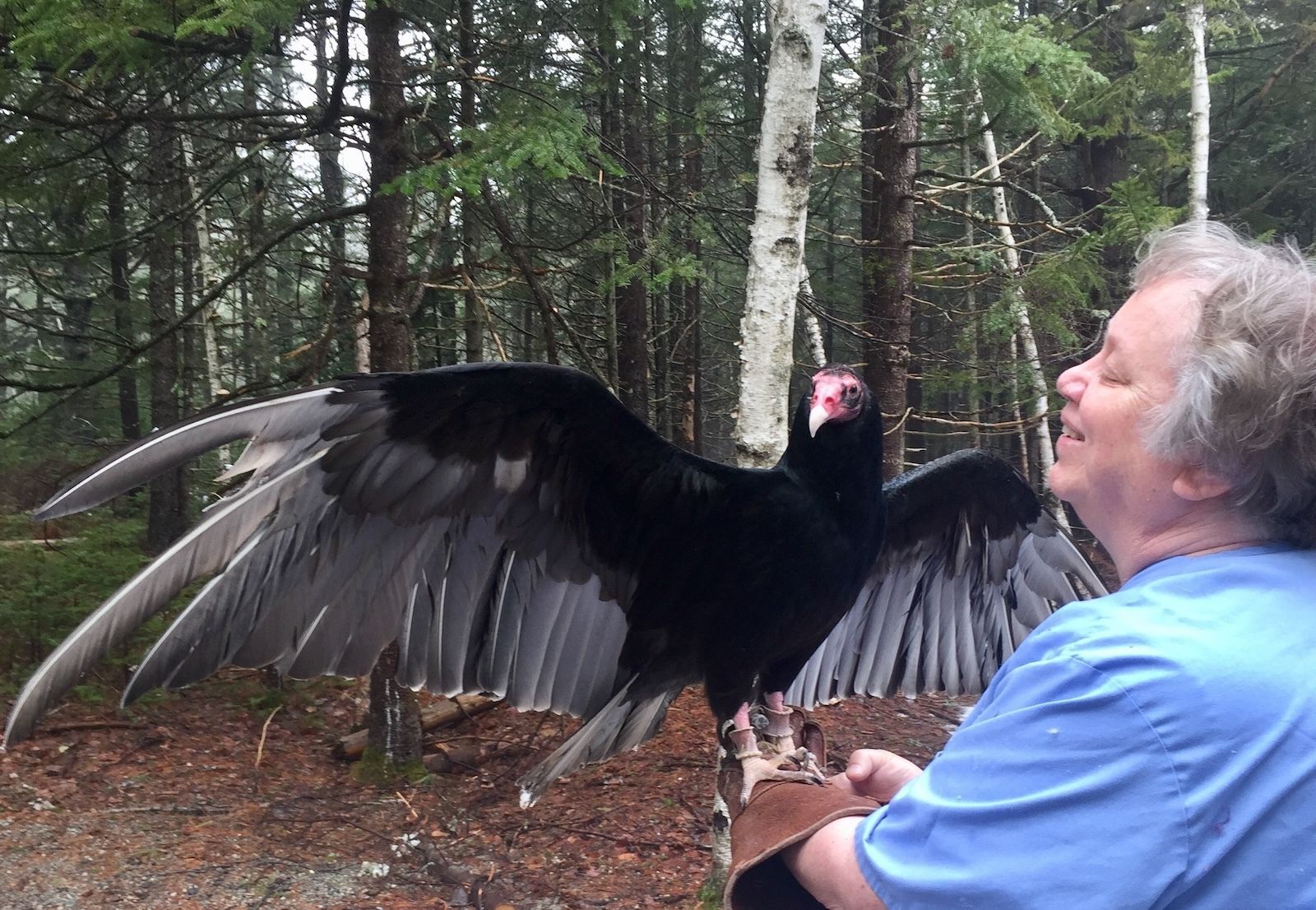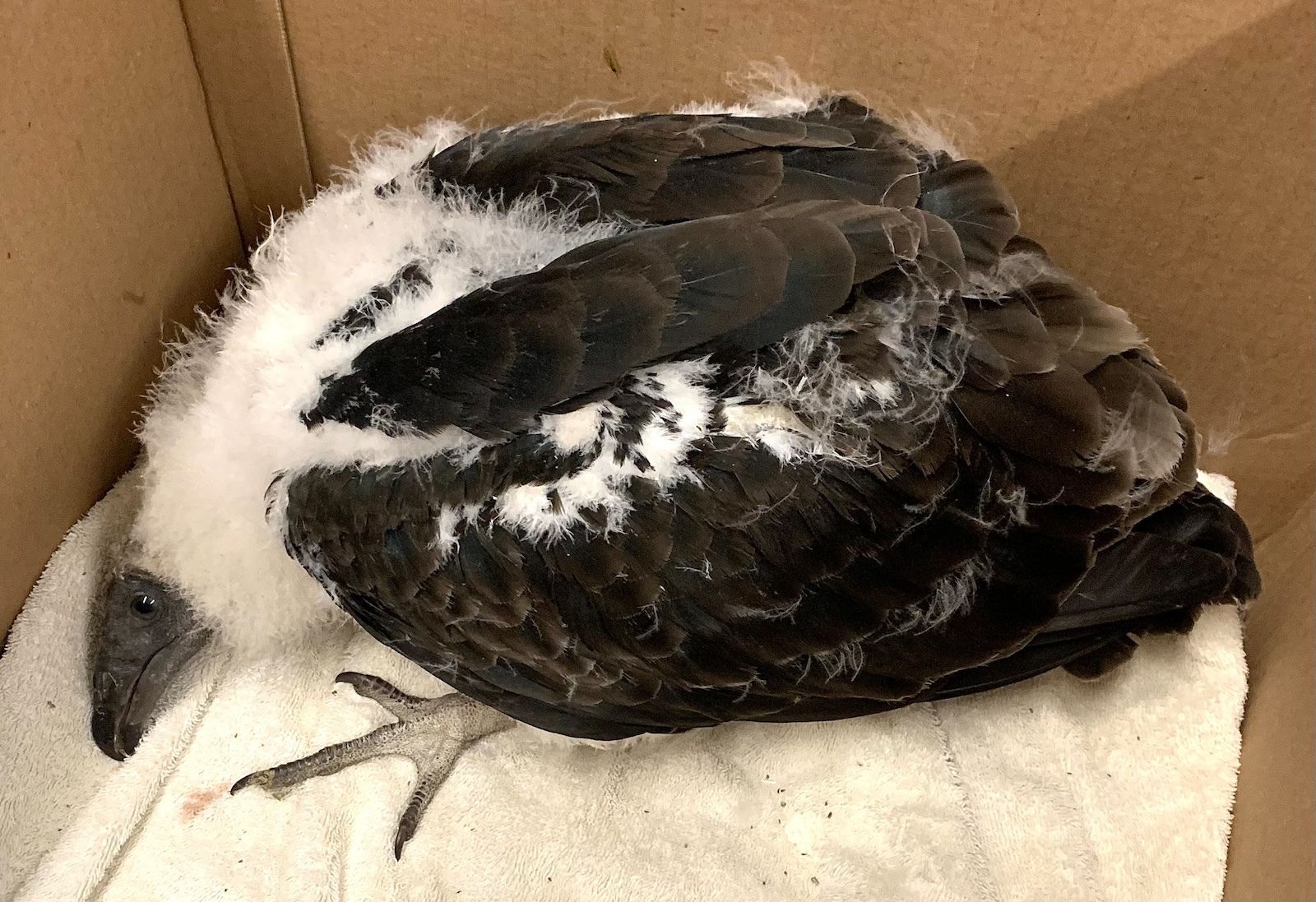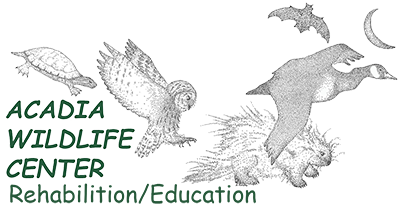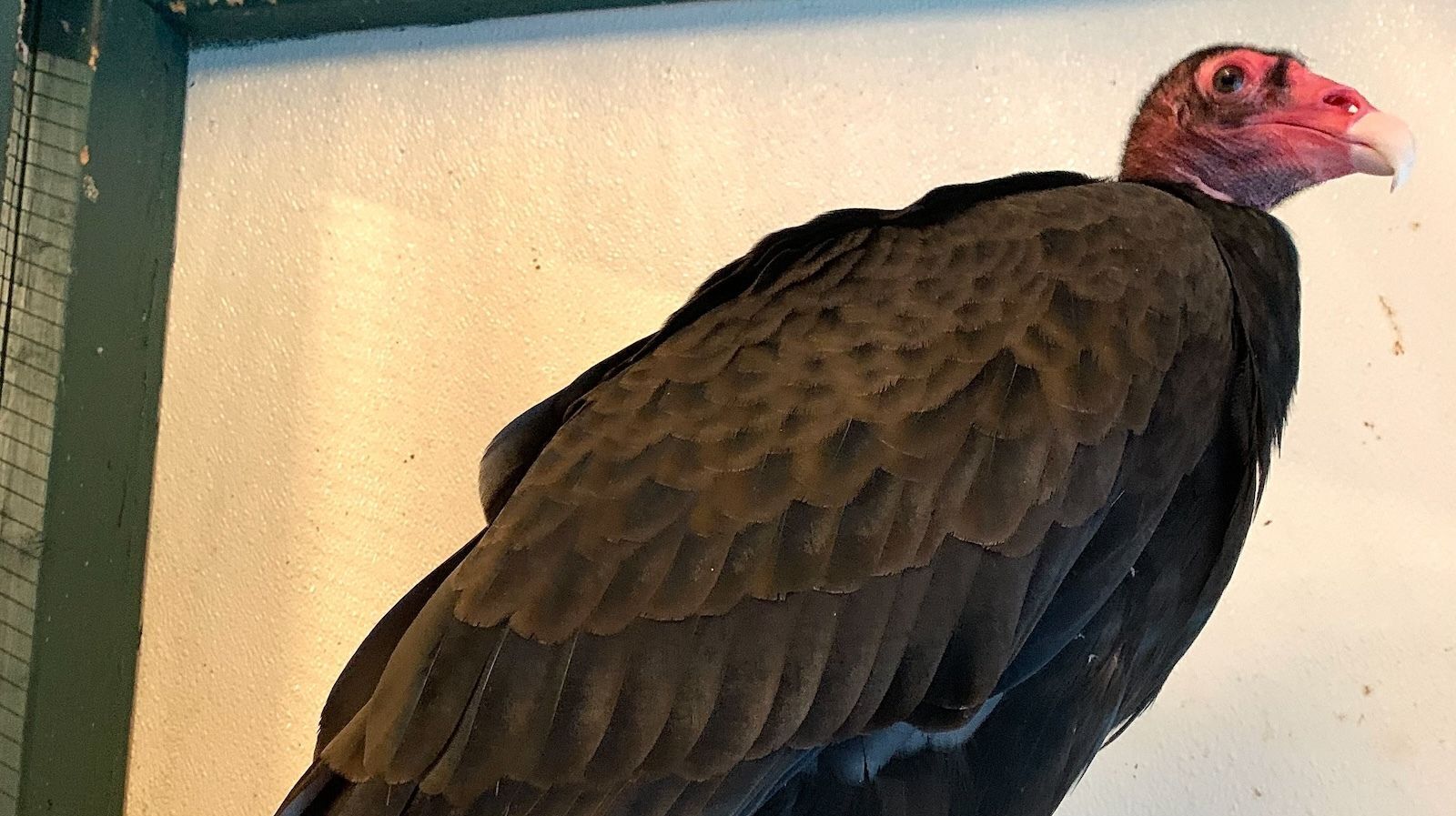Opel has lived with us a long time, first with an older vulture named “Ruby” and then alone when we lost Ruby. She is a wonderful bird, and a wonderful species: intelligent, curious, with great wrinkles on her bare red forehead when she’s thinking. She came to us as a very tame juvenile of the year. Some young vultures, when they separate from their parents, aren’t very good at finding food, and they gravitate to people to get fed. Opel was put with older vultures in our clinic for the winter but did not improve and eventually we decided that she could not be released. We do not think she had a concussion, just a difficult childhood where she did not learn enough to survive.

Vultures, with their bare heads and legs get cold in our winters and have always migrated south, returning in the spring. However lately they have been staying later and later in the fall, and returning earlier. We either keep Opel inside in the winter or wrap her outdoor cage with vinal and hang heat lamps to keep her warm. She is partially trained as a on-the-glove bird. She also acts as a foster mother to young vultures that we get in, improving their wildness and survival skills.

Vultures, with their enormous wings, glide like kites in the air looking for dead animals they can scavenge. They do not flap unless they must, which takes energy, but float on the thermals covering long distances. They do not kill prey to eat. For their scavenging habits, they are cherished around the world, keeping everything clean. They are one of the very few birds who have a sense of smell, finding food even if its buried. They watch what each other is doing, circling in on a find, and other scavengers watch them (crows, ravens, eagles, Black Vultures etc.) so they are responsible for helping to feed a whole community.

